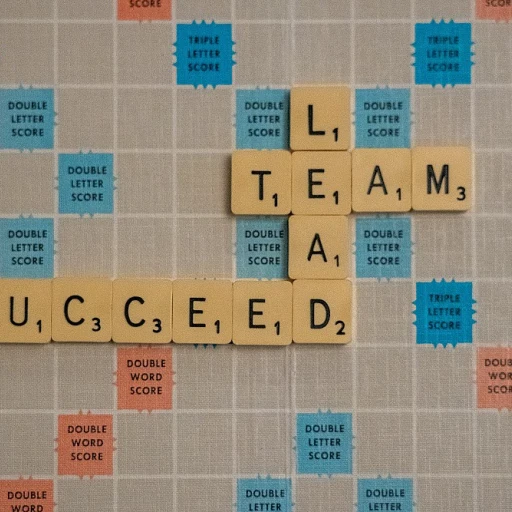Understanding the HR Landscape
Getting a Grip on Human Resources
Embarking on a career shift into human resources can feel like entering a whole new ballgame, but don't sweat it—you're not alone on this journey. The human resources world is all about dealing with people: managing talent, understanding employment laws, and making sure the work environment is top-notch. In the HR gig, you’re looking at roles from talent acquisition to resource management. You'll be engaging with hiring managers, helping shape company culture, and sometimes even diving into project management. It’s a people profession at its core, and if chatting with folks, solving problems, or organizing training gets you hyped, you might just find your new home here. The changes in this field are driven by businesses recognizing the immense value HR professionals bring. You’re not just doing paper-pushing work, folks. An HR professional helps guide the company direction and nurtures employees’ growth, making a real difference. If you're aiming to blend into HR, start by getting familiar with the basics. Learn about the business you're entering. Know the industry trends, grasp a solid understanding of HR practices, and get cozy with employment law. Experience and previous work can aid in understanding what the role demands, especially if you have a knack for social media and learning development aspects. Many folks come from various career paths, carrying their own sets of skills into HR roles—be it management, administrative tasks, or direct interactions with clients. It's about recognizing and leveraging your experience to fit into the HR framework. If you’re from a project management background or have interacted with other departments in your previous positions, you’re likely already familiar with some of the HR tasks. Human resources isn't just a job, it's a career path loaded with opportunities for growth and development. If making the leap from corporate life to freelance freedom piques your interest, there’s a blog that might be worth checking out Making the Leap from Corporate Life to Freelance Freedom that could offer some valuable insights.Assessing Transferable Skills
Pinpointing Your Assets to Benefit HR
Making a career switch involves recognizing how your current skills can translate into a new role. When you're looking at human resources positions, it's about highlighting the qualifications you already have. Think about your people skills, problem-solving abilities, and project management experience. These are often what's needed to succeed in HR roles. For instance, if you've previously worked in customer service, you’re probably skilled in communication and conflict resolution—both big in HR. Or, if you have a background in marketing, your understanding of social media tools will be beneficial for HR, especially in areas like employer branding and talent acquisition. It's also a good idea to see how your management experience can apply to employee relations or resource management. And don't forget the power of your soft skills. They help create a welcoming atmosphere, which is crucial for internal communications.Learning About the Knowledge You Need
Transitioning into HR isn't just about knowing what skills you have but also understanding what's missing. Start by researching HR practices and familiarize yourself with employment law, because these frame the industry standards. You might explore courses like CIPD Level programs, which offer comprehensive knowledge in human resources management and can give you a leg up. Continuous learning will set you apart, so consider online learning platforms to fill gaps in knowledge. Additionally, attending workshops or webinars focusing on HR trends or people management techniques can be invaluable in building a robust expertise.The Power of Networking and Finding Your Mentor
Networking plays a pivotal role in transitioning careers, especially into HR. This is where you can start connecting with professionals in the field—fostering relationships that might open doors to opportunities down the line. Engage with HR groups on LinkedIn or attend industry conferences to tap into the human resources community. Finding a mentor also boosts your career transition, providing guidance and insights that are hard to find elsewhere. A mentor in the HR space can offer advice on a career path, suggest ways to gain practical experience, and might even help you with introductions to hiring managers.Building Your HR Resume
Before you knock on company doors, make sure your resume speaks the HR language. It’s not just a document; it’s your professional story. Tailor it to emphasize how your past work experience matches the job you want. Be sure to concretely describe projects where you've developed key HR skills. Highlight any experience in resource management, project oversight, or any aspect of people profession. If you’ve got internship experience or have worked closely with HR, include those as well. Adding keywords such as "talent acquisition," "learning development," or "employment law" can catch the eye of hiring managers and increase your chances of landing an interview. For more insights into making such a career change, you might want to read this article on starting fresh from a different background: A Fresh Start: Changing Careers From Teaching.Educational and Certification Pathways
Learning Your Way Into HR
Stepping into a human resources role from a different career can feel like trying to learn a new language. Whether you're coming from teaching, finance, or tech, understanding the basics of HR through education and certification can be essential for your career transition. Start with education. Consider enrolling in courses that introduce you to core HR concepts like resource management and employment law. These will provide a foundation upon which you can build practical experience. Various institutions, depending on where you live, offer diplomas or degrees in HR, but you might also want to look into more specific options.Certifications that Matter
Certifications are another way to put your professional knowledge on paper. They not only enhance your job application but also show employers you’re serious about your HR career path. One such well-recognized certification is the CIPD (Chartered Institute of Personnel and Development) in the UK, which offers various levels – from entry to advanced qualifications that can open many doors in the HR field. In the US, the Society for Human Resource Management (SHRM) provides certifications that are highly regarded. As you explore these options, make sure they align with your career goals and the demands of your preferred industry.Resource Management through Practical Experience
If a formal education or certification isn't feasible at the moment, gaining practical experience can also help. Consider starting with roles that have a strong HR component like talent acquisition or learning development, which are often available within internal job postings in companies. Being part of such projects can provide exposure to the HR tools and practices you’d encounter in a full-time HR role. You might also want to check out short courses or workshops offered by professional bodies or industry experts. These can offer hands-on experience in various aspects of HR, helping you to pick up essential soft skills. Remember, education is a stepping stone, but real-world experience is invaluable. Combining them sets you up for success in the human resources career change. If you're curious about how others have made transitions from teaching or tech into HR, exploring personal stories could be insightful. For example, check out how tech pros make smooth career changes for a look into how you can reinvent your work life in HR.Networking and Mentorship
Building Connections and Learning from Peers
Entering a new career can feel like stepping into unknown territory, but the right network can make all the difference. When switching to HR, start by reaching out to professionals already in the industry. This could be former colleagues, LinkedIn connections, or acquaintances in related departments. Remember, these people are not just contacts—they're valuable sources of knowledge and wisdom.More Than Just a Network
While networking is critical, mentorship is the secret sauce. A mentor offers guidance based on their own experience, providing insights into potential career paths and sharing lessons learned from their own journey. Look for mentors who have successfully transitioned roles or have a wealth of HR experience. The insights and guidance from someone who's been through the ropes can be life-changing.Employ Social Media to Your Advantage
Social media platforms like LinkedIn play a big role in today’s career transitions. Regularly engage with HR-related content, join relevant groups, and contribute to discussions. This not only builds your understanding but also showcases your interest and growing expertise in human resources. It's about standing out to hiring managers who are always on the lookout for active and informed candidates.Engage with Professional Organizations
Becoming a part of professional bodies, such as the CIPD (Chartered Institute of Personnel and Development), bolsters your professional credibility. Attending events, both virtual and in-person, can lead to connections with others in the human resource field. These interactions are not only enlightening but may also open doors to opportunities you might not find elsewhere. The HR community is vast yet welcoming, and there's much to learn from those who have already paved the trail. The knowledge, skills, and connections gained through networking and mentorship are invaluable tools for anyone making a career change. Step out, engage, and let your journey in the people profession begin to unfold.Crafting a Compelling HR Resume
Building Your HR Story
Switching gears into the human resources field is a big step, and your resume is the first impression you'll make on hiring managers. It's your story, your chance to showcase the skills and experiences that make you a strong fit for the HR role you're eyeing. Whether you're transitioning from project management, talent acquisition, or any other profession, your resume should reflect the transferable skills you've honed over your career.
Highlighting Transferable Skills
Start by identifying the skills that bridge your past roles with your future in HR. Think about your experience in people management, conflict resolution, or employment law. These are valuable in the HR world. If you've led teams or projects, emphasize your leadership and organizational skills. These are key in resource management and learning development, two critical areas in human resources.
Showcasing HR-Specific Training
Incorporate any HR-related education or certifications, like a CIPD Level qualification, into your resume. This demonstrates your commitment to the career change and your eagerness to learn. Even if you're at an entry-level stage, showing that you're actively pursuing HR knowledge can make a difference.
Quantifying Your Achievements
Numbers speak louder than words. Use metrics to quantify your achievements in previous roles. Did you improve team productivity by a certain percentage? Did you manage a budget or save your company money? These accomplishments can translate well into HR functions, like talent acquisition or resource management.
Tailoring for Each Application
Each company and role is unique. Customize your resume for every job application. Research the company, understand its culture, and align your resume with its values. Highlight the skills and experiences that are most relevant to the specific HR role you're applying for.
Personal Touch and Professionalism
While maintaining professionalism, add a personal touch to your resume. Include a brief summary that captures your passion for the HR field and your enthusiasm for the career transition. This can help hiring managers see you as a well-rounded candidate, not just a list of skills and experiences.
Remember, your resume is a living document. Keep it updated with new skills and experiences as you continue your journey into human resources. This proactive approach can significantly boost your chances of landing the HR role you're aspiring for.








